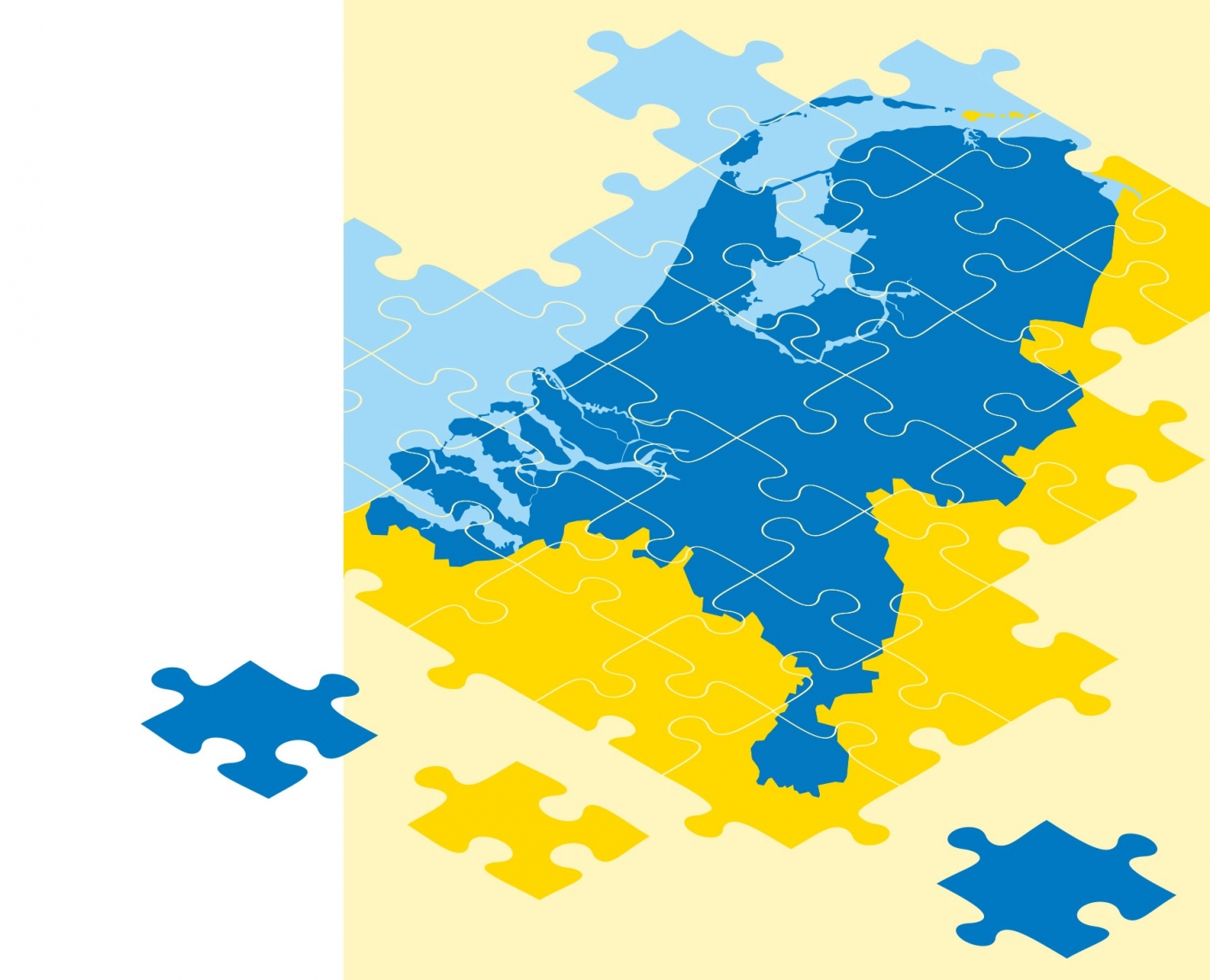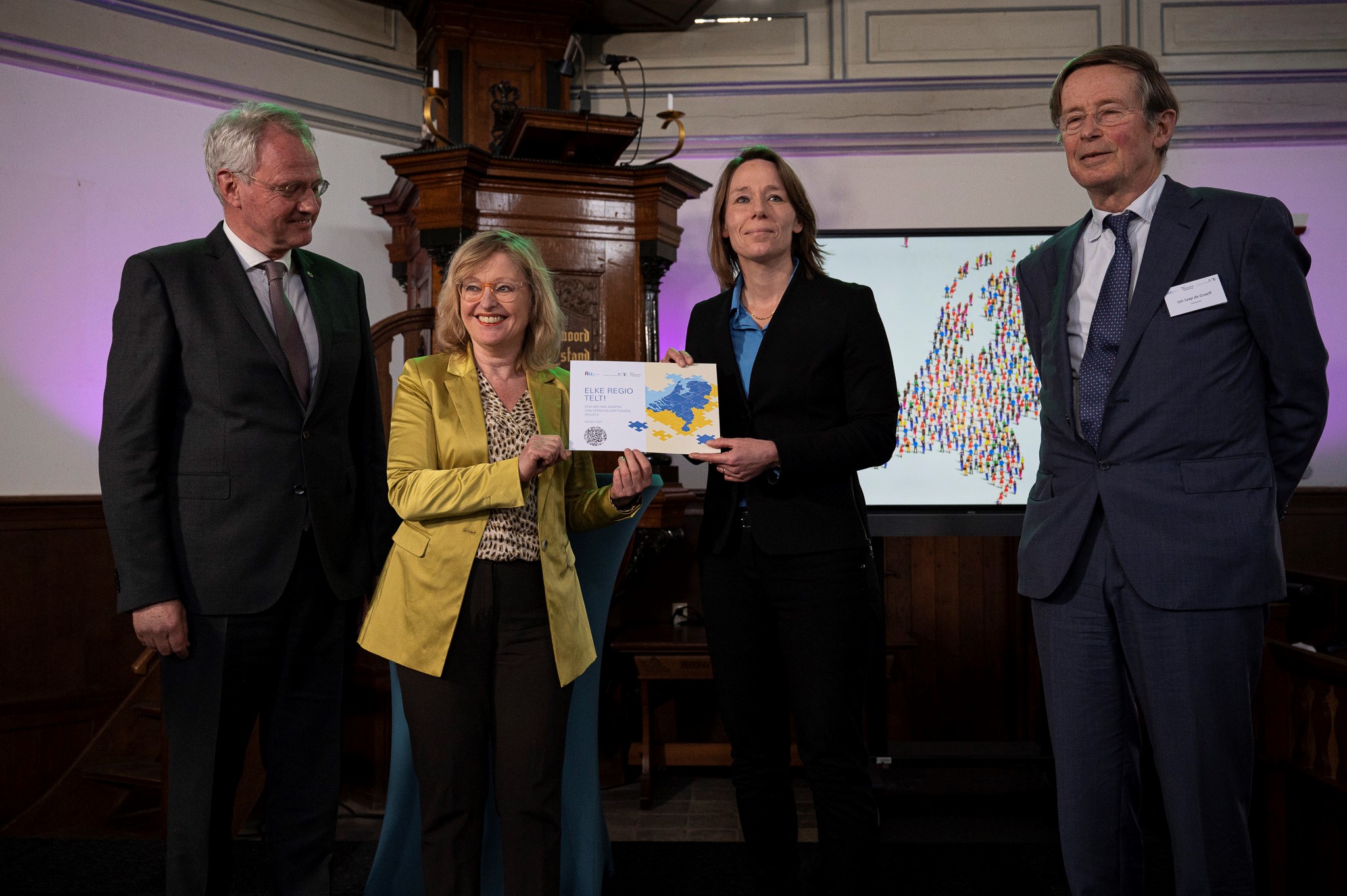
Background and request for advice
Although the Netherlands is a relatively small country, it has significant regional disparities. There are differences between regions in terms of the landscape and culture, but also when it comes to people’s chances of finding suitable jobs, getting an education in an easily accessible location and growing old in good health. Certain parts of the Netherlands, mostly in ‘peripheral’ regions outside the country’s economic centres, face an accumulation of deficits in several areas. Deficits include the level of average income, the quality of the environment, the availability of public facilities, such as education, healthcare and public transport, and the employment situation. In certain regions there are also few cultural facilities and meeting places available and maintaining active clubs and associations there is no easy task.
This advisory report considers the nature and extent of regional disparities and deficits and aims to contribute to a new approach to tackling regional disparities in wellbeing, thereby strengthening the Netherlands as a whole. Three advisory councils have come together to draw up this report: the Council for the Environment and Infrastructure (Rli), the Council of Public Health & Society (RVS) and the Council for Public Administration (ROB). They considered the following question:
What is needed to prevent or reduce undesirable disparities between regions and thereby promote wellbeing in all regions of the Netherlands? And what role should central government and other entities play in this?
Explanation
In recent years disparities in wellbeing between the regions of our country have widened and government policies have contributed to this. Outside the Netherlands’ economic centres, more and more facilities are in decline and disappearing, including those related to accessibility, healthcare, education and culture. This is leading to socio-economic deficits and also health inequalities. During our research we also saw and heard, of course, that many people appreciate and cherish life in the regions outside our economic centres for a variety of reasons: the space, the social cohesion, the landscape or the peace and quiet these places offer. Nevertheless, we encountered too many undesirable deficits in terms of wellbeing – undesirable because they undermine the vitality and quality of life of communities in the regions and lead to adverse impacts for the Netherlands as a whole. We noted that national policy currently focuses on economic centres and that the government tends to look at the efficiency of investments and (semi-)public facilities from a ‘macro perspective’, without considering the specific, regional context. Issues that are urgent and of great importance in the regions outside economic centres, such as public transport links and maintaining the level of education and healthcare provision, are of only limited significance when efficiency is considered from a national ‘macro perspective’, as these regions are more sparsely populated and make a smaller contribution to national economic growth.
All in all, national policy does not currently focus on ensuring a basic level of wellbeing throughout the country. The limited attention paid to regions outside economic centres is additionally problematic when you consider that the Netherlands is confronted with a number of major, national social challenges, such as climate adaptation and the necessary energy, agricultural and economic transitions. These can only be addressed successfully if the entire country can contribute to this process and benefit from the outcome. This calls for resilient, vibrant regions and a good relationship between central government and the regions. Moreover, the growth of economically strong regions is reaching the limits of what is possible without affecting quality of life, with a resulting risk of new problems arising in areas including housing, the quality of the environment and health. We therefore believe that a new perspective is needed within national policy: one in which regional opportunities are valued and in which the people who live and work in the regions are taken fully into account.
To counter the undesirable disparities in wellbeing in the Netherlands, the councils are making the following recommendations:
- Rethink central government’s conventional policy and investment logic by focusing national policy on wellbeing in all regions and allowing budgets to be pooled.
- Invest in substantial, long-term regional development programmes by encouraging regions to develop opportunity agendas to promote greater wellbeing and by making long-term investment budgets available as central government.
- Work to develop a strong relationship between regions and central government by aiming to achieve a modern decentralisation policy and ensuring the regions are represented at central government level and central government is represented in the regions.
Publication date and meeting
The advisory report was presented to the Minister of the Interior and Kingdom Relations, Hanke Bruins Slot, on 27 March 2023. During a public meeting in Veenhuizen, council chairs Jan Jaap de Graeff (Rli), Han Polman (ROB) and Jet Bussemaker (RVS) jointly handed over the report to the minister.

From left to right: council chairs Han Polman (ROB) and Jet Bussemaker (RVS), Minister Hanke Bruins Slot and council chair Jan Jaap de Graeff (Rli). Photo: Karel Hulskers.
More information
For more information about the advisory report or to give your reaction to it, please contact the project leader Bart Swanenvleugel at bart.swanenvleugel@rli.nl, or on +31 (0)6 5201 2691.